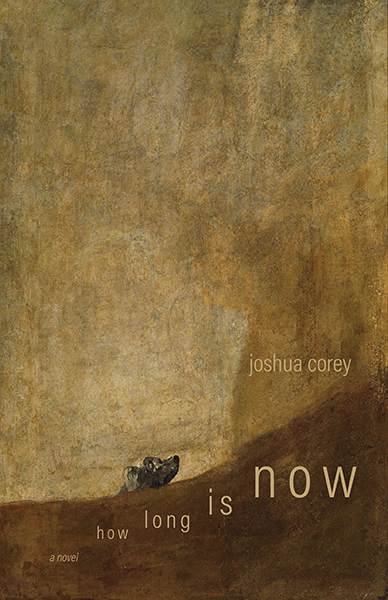How Long Is Now
“Equal parts family drama, travelogue, and literary mystery, Joshua Corey’s How Long Is Now is a poetic rumination on art and loss.” — Nick Rees Gardner, Independent Book Review
What are fathers for?
People ask me how I write so much. They don’t ask why but that is what they mean. They can’t quite conceal their fascinated disgust, so easily mistaken for envy. They peer sidelong at the freak that I am.
How Long Is Now is a novel, a memoir, a travelogue, a shaggy-dog story, and a tragicomic sequel of sorts to Beautiful Soul: An American Elegy. A middle-aged poet flees his responsibilities and the specter of his father’s impending death by traveling to Berlin, to Morocco, to Spain, pursuing the equivocal evidence of an epochal meeting of two ghostly literary fathers, Samuel Beckett and William S. Burroughs. Behind him, like the backdrop of a film, unspools the story of his father as a young man, an assimilated Chicago Jew who moves to 1960s New York City and falls in love with the brilliant and depressive daughter of Holocaust survivors. They will become the narrator’s parents. He will become a son, a husband, a writer, and the fool for love he was always going to be.
Available now from Spuyten Duyvil Press and your local independent bookstore.
Experimental in its waver between past and present, its combination of theory and narrative, and the shifting focus between first, second, and third person narration, How Long Is Now is as strangely beautiful as it is informative. Cities like Munich, Tangiers, and Madrid are limned illustriously, creating an intimate and nuanced sense of place. The scenery and citizens bloom. With its unnamed protagonist in the midst of emotional crisis, How Long Is Now is a quiet novel, but Joshua Corey’s pulsing prose is a force to be reckoned with.
Joshua Corey writes an impeccable prose that resonates with echoes from the past, even as these echoes propel his narrative onward in the present and beyond, into the future. But that is not all. This is the Portrait of the Artist as a Jewish American male in the early years of the 21st century. His characters hail from a kind of ideal America where people read books and esteem a good education, which in no way absolves them of the tragic rhythms of action that surround their lives. This is the first contemporary novel that I've read in which I have gone back and re-read a paragraph—because it was so good—and not once but several times.
—M.G. Stephens, author of Kid Coole
By turns lyric and hypnotic, How Long is Now examines the delicate membranes separating past and present, authenticity of experience and transgressive truth. A Jewish-American writer, plagued by poetry and history, leaves his dying father and faithless marriage to travel to Germany and later Morocco to attend a William Burroughs conference, an unwritten novel on his plate. Enter a mysterious film, a cocktail of wild characters, and a fractured narrative that attempts a reimagining of his parents’ early courtship while his own life destabilizes into a sad, metaphysical travelogue, and we’re left beguiled by the wondrous, bitter nature of a reality that’s more cut-up than consistent, a Beckett play on deepening failure and paranoia. Hope is not lost, however—it just comes with a price—and as we’re ushered through a lengthening series of psychological obstacles and aesthetic quandaries, we come closer to understanding what that price may be.
—Joe Pan, author of Operating Systems
